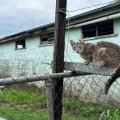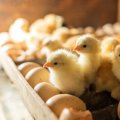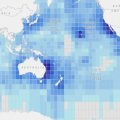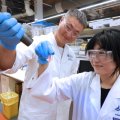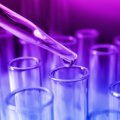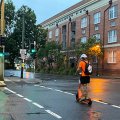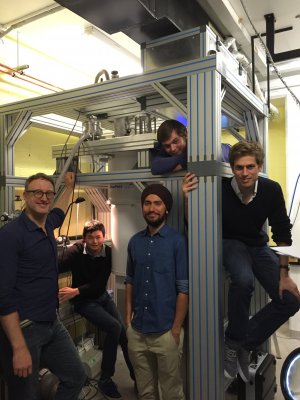
While most of us crave a heater this winter, University of Queensland scientists have eagerly welcomed Australia’s coldest refrigerator.
Quantum researchers from the UQ School of Mathematics and Physics have installed a new state-of-the-art super cooling facility that can almost reach absolute zero (-273.15 degrees Celsius), bringing new capabilities in superfluid study to Australia.
ARC Centre of Excellence for Engineered Quantum Systems (EQuS) Node Manager and chief investigator Professor Warwick Bowen said the one-tonne $500,000 dilution refrigerator allowed ultra-low temperature experiments in photonics, which is the science of light generation, detection and manipulation.
“These capabilities are not available anywhere else in Australia,” Professor Bowen said.
Professor Bowen said the facility would enable scientists to explore a full range of superfluid phenomena and to conduct world-leading research on quantum devices and quantum information science.
It would also allow them to study the microscopic physics of superfluid helium in a manner never before attempted.
“Superfluidity is a quantum phenomenon that happens when helium is cooled to low temperatures,” Professor Bowen said.
“One property of superfluids is that their motion experiences no resistance, and therefore, once initiated, it never stops.
“The facility should enable important applications to be realised in both precision sensing and future quantum technologies.
“The equipment will provide UQ with the unique capabilities to study both superfluidity and optical processes in materials at temperatures below 7 millikelvin or less than one hundredth of a degree away from absolute zero (-273.15 degrees Celsius).”
While other fridges in Australia could reach below 10 millikevin, they did not allow for the study of optical processes, Professor Bowen said.
It would also allow for research on technologies that are important for practical applications in aerospace and geo surveying.
The fridge will be the centrepiece to establish the UQ Superfluid Physics Facility, and will be available for use by EQuS, the UQ School of Mathematics and Physics, School of Chemistry and Molecular Biosciences, the ARC Centre of Excellence for Quantum Computation and Communication Technology, Centre for Quantum-Atom Optics, and the UQ Centre for Organic Photonics and Electronics.
Media: Professor Warwick Bowen, w.bowen@uq.edu.au, +61 7 33469425; Faculty of Science Communications Julie Baglot, 07 334 60808 or j.baglot@uq.edu.au
.jpg)



